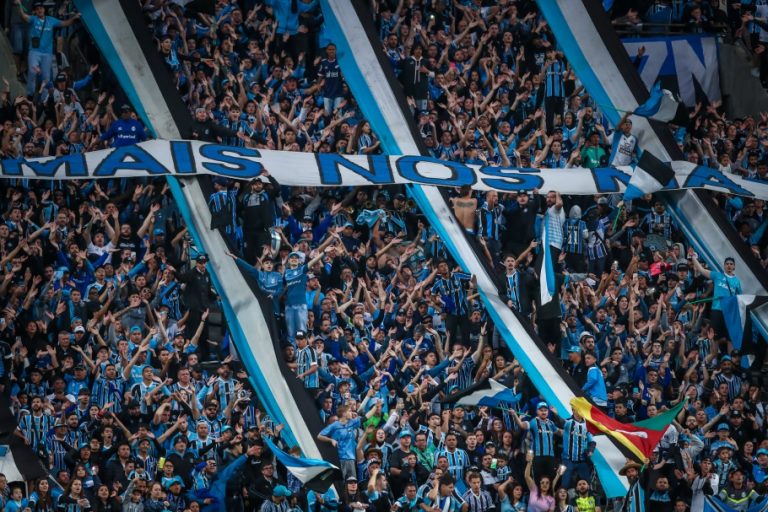Grêmio Foot-Ball Porto Alegrense celebrates 120 years of history this Friday (15). Five-time champion of the Copa do Brasil, the team was the emblematic champion of the first edition of the championship, which took place in 1989. Founded on September 15, 1903, its history is mixed with the arrival of football in Brazil
The Imortal’s trajectory began with Cândido Dias da Silva. The São Paulo native had been working for some time in Porto Alegre and, on September 7, 1903, he went to watch an exhibition between teams from Rio Grande, made up of English and Germans.
With his ball under his arm, Cândido was among the curious people watching the event. Until, at a certain point, the match ball was empty and the São Paulo native lent his own, guaranteeing the end of the demonstration. In return, he received a “class” from the players, who taught him his first lessons about football and, through them, he learned how to act to found a club.
READ MORE
++ When will Neymar’s debut game with Al Hilal happen?
++ David Luiz official account posts a goodbye video to Flamengo, but the player denies it
++ Thiago Silva disagrees with his EAFC 24 rating: ‘They’re watching football with their eyes closed’
Shortly afterwards, on September 15, 1903, thirty-two men, including Cândido Dias da Silva, met and began the history of Grêmio. The club’s first president was Carlos Luiz Böhrer.
Tricolor Gaúcho’s first victory came in 1905, when they were champions of the Taça Vereinpreis. The club has a significant number of Campeonato Gaúcho titles, totaling 42.
One of the most emblematic years for the team was 1983, when Grêmio lifted the Copa Libertadores da América champion trophy, one of the most desired championships for South American teams. Afterwards, Imortal became world champions with two goals from Renato Gaúcho, the club’s current coach, confirming the 2-1 victory over Hamburgo (ALE). The team won two and three Libertadores titles in 1995 and 2017, respectively.
In Brazilian territory, Grêmio has accumulated seven national titles. Among them, the Brazilian Championships of 1981 and 1996 and the Brazilian Cups of 1989, 1994, 1997, 2001 and 2016.
The search for gender equality also had an echo in the world of football. As of 2019, all clubs participating in Series A of the Brazilian Championship must have a women’s team to qualify for the Club Licensing of the Brazilian Football Confederation (CBF). Grêmio had already anticipated and became one of the first teams to comply with the requirement, as it reopened its department in 2017.
The Gurias Gremistas returned to the Brasileirão Feminino A1 in 2019 and were champions of the Supercup in 2022, the same year they won their fourth Gaúcho championship.
Parabéns, @Gremio! 🤩🥳
O clube gaúcho completa 1️⃣2️⃣0️⃣ anos de fundação.
🏆🏆🏆 CONMEBOL @LibertadoresBR
🏆 @ConmebolRecopa
🏆 #ClubWC#AniversarioCONMEBOL #AcrediteSempre pic.twitter.com/yj9P4ZaS43— CONMEBOL.com (@CONMEBOL) September 15, 2023



